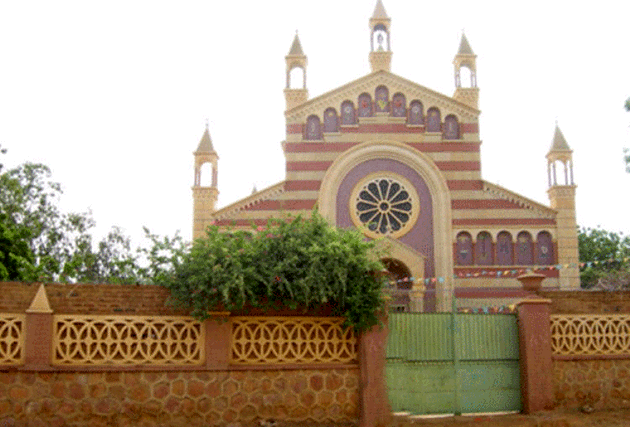YAOUNDÉ, Cameroon – A Catholic bishop gave chilling testimony of a November 30 assault he suffered in the hands of Sudan’s warring military factions – the Sudanese Armed Forces (SAF) and the paramilitary Rapid Support Forces (RSF.)
Bishop Yunan Tombe Trille Kuku Andali of the El-Obeid Diocese in North Kordofan state in Sudan and a Church deacon – identified simply as Joseph – were returning from the town of Renk, a town in South Sudan near the border with Sudan, when they first fell into the hands of the SAF.
Both men were returning from South Sudan where they participated at a November 24 Eucharistic Congress and celebrations in Juba marking 50 years of the Catholic Church hierarchy in Sudan and South Sudan.
In a written account to Bishop Edward Hiiboro Kussala of South Sudan’s Catholic Diocese of Tombura-Yambio, Tombe described what happened.
“From the side of the army [SAF], some little cash in USD was taken on the pretext that I was carrying the forbidden hard currency,” wrote Tombe, who is also the President of the Bishops’ Conference of Sudan and South Sudan.
After leaving the SAF, the duo fell into the hands of the rival RSF militia, who physically beat him up and left him for death.
“On the side of Rapid Forces, I was given countless heavy blows on the neck, forehead, on my face and two sides of my head,” the bishop wrote in his note to Kussala.
“I can’t bite food. Together with deacon [Joseph], we narrowly missed martyrdom when one leader said that is enough,” he recounted.
Reacting to the attack on the El-Obeid Bishop, Bishop Matthew Remijo Adam of Wau in South Sudan said he was saddened by the assault.
“We are deeply saddened and troubled by this news,” Remijo told Catholic Radio Network.
“As leaders of the Church, we strongly condemn these acts,” he added, before calling on President Salva Kiir Mayardit to engage with the Sudanese government to ensure Tombe’s safety or facilitate his relocation from the diocese if necessary.
He exhorted the faithful to pray for Sudan, the Church, and all clergy members working in dangerous conditions across the country, and stressed unity and solidarity in challenging times.
The rival forces in Sudan – the SAF and the RSF – have since 2023 been locked in a conflict that has claimed the lives of at least 61,000.
It’s led to one of the world’s worst humanitarian crises, with over 11 million people displaced since conflict broke out between Sudan’s army led by Gen. Abdel Fattah al-Burhan and the RSF headed by his former deputy Mohamed Hamdan Dagalo, according to the UNHCR.
The two sides have been fighting for power and control of state resources.
It is not the first time Tombe, who has been a vocal advocate for peace in Sudan, has come closer to being killed as a result of the war.
On April 20, 2023, rockets struck the Mary Queen of Africa Cathedral and priests’ residence where Tombe and other clergy were praying.
According to Father Peter Suleiman, Secretary General of the Sudanese and South Sudanese Catholic Bishops’ Conference (SSSCBC), the bishop’s life was saved because he was not in the room when the missiles struck, noting that the bishop’s room was “completely damaged.”
The recent attack illustrates not only the destructive power of war, but also the risks involved in being a priest in Sudan.
The two military leaders have sought to present themselves as pro-democracy advocates and promoters of religious freedom, but since war broke out in 2023, Christians have been targeted.
Sudan ranks eighth globally on the Open Door’s World Watch List of countries where it is most difficult to be a Christian – up from tenth in 2023.
When Omar el Bashir was forced from power in 2019, Sudan recorded two years of progress in religious freedom. The Military Transitional Government managed to undo some provisions of the Sharia law. For instance, it outlawed the labeling of any religious group “infidels” – thereby effectively rescinding apostasy laws that made leaving Islam punishable by death.
State-sponsored persecution has resurfaced following the October 25 military coup, which saw Abdalla Hamdok, the transitional government’s prime minister since September 2019, detained under house arrest for nearly a month. He was later released and reinstated in a fragile power-sharing agreement in November 2021.
Hamdok had been tasked with eradicating entrenched corruption and dismantling an Islamist “deep state” from Bashir’s regime—the same deep state believed to have orchestrated the October 25, 2021, coup against the transitional government.
It means the lives of some 2 million Christians in Sudan could be at risk.














